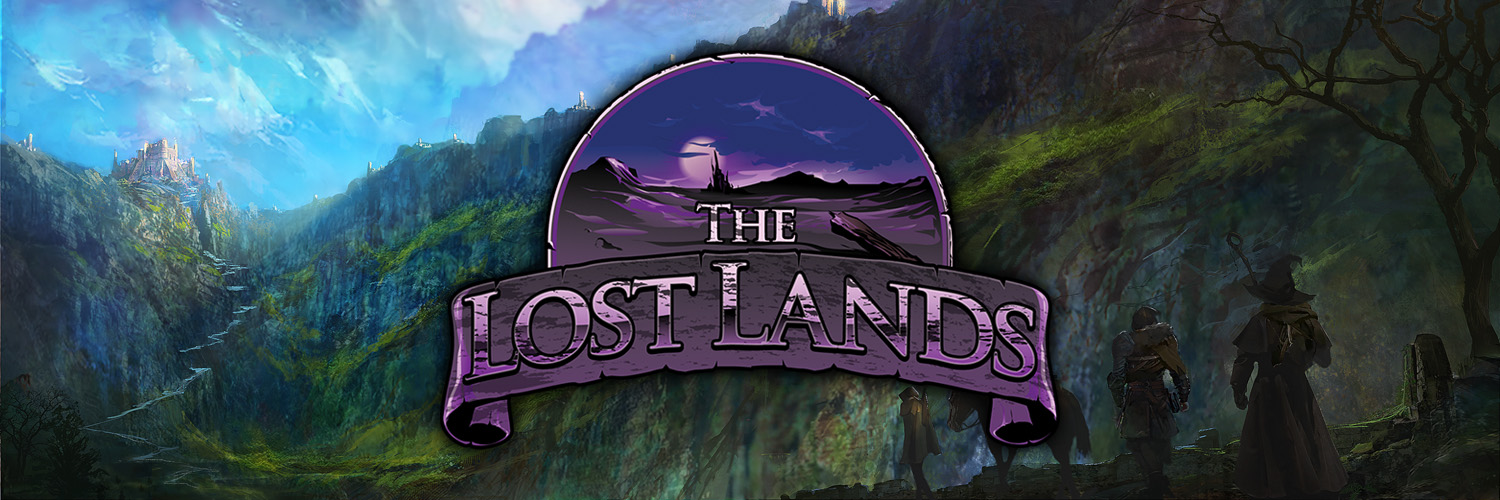Tycho Free States
Located on the Free Coast between the Hellsgate Peaks and the southern end of the Ilber Peninsula, the Green Warden Forest, and the Crescent Sea, the Tycho Free States are officially just over 275 years old, one of the youngest nations in the region. Parts of the Free States’ history goes back thousands of years, however, long enough for individual states in the confederacy to have developed vastly different cultures from one another, despite a common origin.
The name “Free Coast” was originally coined shortly after the official withdrawal of Castorhage from the region in order to distinguish between the Tycho Forest Coast (formerly the Forest Coast Work Colonies) and the rest of the Forest Coast to the south. Initially, it was rarely used by local inhabitants (who were more likely to say “North Coast”) and was more a conceit of mapmakers and politicians.
In recent generations, however, as the descendants of the Tycho Free States’ founding citizens grow further removed from their origin as a penal colony, the “Free” Coast has become known for its high rate of indentured servitude among the populace. This irony has led to the long-standing map-marked title for the area finally coming into general use among the Tycho Free States’ indentured poor and neighboring peoples.
Indentured service in the Tycho Free States is normally imposed as a result of the failure to pay debts or as a punishment for certain crimes. Although permanent slavery is technically illegal, the economy of the region increasingly relies on an ever-growing class of indentured servants, and many local laws make it difficult for those finding themselves in this status to escape their bonds. In addition, a small illegal slave trade can be found running a nomadic operation up and down the Free Coast. With the exception of the renowned privateer Evangeliana Akadearg, the Tycho Free States’ leaders have yet to fully acknowledge, much less address, this elusive new danger in Free Coast waters.
With impassibly rocky coastlines in some areas and easily defensible, well-hidden natural harbors in others, the Free Coast is exceedingly difficult to police. This in itself explains much of the military history and survival of the Tycho Free States, and now encourages a growing tradition of illicit activities in the region. The most dangerous region of the Free Coast is in the north, where ash and steam from the Strait of Gehenna are frequently blown south to obscure northern Free Coast waters and harbors. It is believed that slavers may have a secret base in this region, and that some may in fact be in league with devils from the Hellsgate Peaks.
Outsiders tend to know the Free States by several different, often conflicting reputations. It is a land of liberty and populist values. It is a land of indenture and oppression. It is a land of piracy and anarchy. It is a land of heroes and naval might. It is the human nation with the single best trade relationship with the Green Warden Forest. It has an antagonistic relationship with its elven neighbors and may at any point provoke a war with them. It is a land of overcrowded little cities and ancient, beautiful roads. It is a land of trackless and treacherous wilderness. It is a land of extravagant wealth and a land of humble simplicity. All of these statements are true and not true, depending on where one looks.
History and People
Starting in 2301 I.R., Castorhage established a string of penal colonies on the northern Forest Coast to work convicts and harvest the plentiful trees of the Green Realm. Eventually, King Lertis Tevoy of Castorhage provoked armed conflict with the wild elves of the nearby forest when he tried to build a great road piercing the heart of the Green Realm. The war was ruinous for Castorhage and resulted in the near-total destruction of the Forest Coast Work Colonies. By 2373 I.R., the great road project was abandoned, and Ilber Nole was left as the only remaining fortification on the Forest Coast. By the following year, King Lertis was overthrown by his half-brother and sold into slavery to pay for the debts he incurred in the war.
After peace was restored with the elves, Castorhage continued to send convicts and other undesirables to the Forest Coast. The island nation had less luck maintaining control over its colonies, as other outcasts and those seeking political freedom also began to relocate there. By 2854 I.R., the settlements of the Forest Coast ceased payment of taxes to Castorhage, and despite various threats, Castorhage in effect lost control of its colonies there. Attempts by Castorhage to reassert dominion were thwarted by the Grand Duchy of Reme, which preferred independent cities along this critical line of Crescent Sea shortline. In the 3230s, a group of Reme-influenced philosophers and revolutionaries founded Timbertown on principles they believed at the time would lead to a natural meritocracy. They set about freeing the oppressed populace of Pearlhaven. Finally, in 3240 I.R., Castorhage lost the Short War with Reme, and agreed to permanently absolve all claims to the Forest Coast. The next year, in 3241 I.R., the Tycho Free States were founded.
Timbertown, Pearlhaven (which returned to its former penal colony name of Bogsweat), and Fringe became the first three States on the Free Coast, and leaders from these three vastly different regions collaborated on and eventually signed the Tycho Free States Accords. These leaders, however, knew more about grand ideals than they did about actual governance, so the accords have proven over the intervening years to be a minimal legal system at best, and barely more than a loose alliance at worst. Few other nations have taken the Free States seriously as a unified entity, and it remains common practice to deal with each local leader as a wholly independent entity. Some see the entire Free Coast as vassal states either to the elves of the Green Warden Forest or to Reme.
However, in the last 20 years much has changed in the Free States. Timbertown’s economy has leapt astronomically, and Bogsweat has been nearly keeping pace. At the same time, a vigilante privateer by the name of Evangeliana Akadearg took it upon herself to hunt down and attack slaver ships all over the Crescent Sea to bring the freed slaves home with her to a small harbor on the northern Free Coast. Eventually, this harbor became a town, and — as its reputation spread for harboring all “refugees from injustice” with no questions asked — the town became a city, and soon Freetown was large enough to sign the Free States Accords in 3502 I.R. “Captain” Akadearg’s flotilla of loyal ships instantly doubled the Free States’ navy, vastly increasing the nation’s military pull with surrounding entities.
More changes followed swiftly on Freetown’s heels. While the chaotic young city continued to grow far too fast for its own infrastructure or minimal legal system, the infamous pirate haven of Ilber Nole, on the Free States' southern edge, decided suddenly to clean up and start behaving like a real community. The people of the Free States were understandably skeptical of this change of heart, but when the Ilber Nole pirate flotilla came to the Tycho navy’s aid in its next conflict, Ilber Nole’s head of state, Andre Turotimis, was also invited to sign the Free States Accords in 3511 I.R., further increasing the nation’s naval might.
In the nearly seven years since the number of Tycho Free States officially increased to five, the rest of the world began taking more notice of the sometimes quite backward confederacy. Indeed, the Free States seemed to be taking themselves more seriously as well. In 3513 I.R., at the most recent Free States Conference of Leaders, more new laws and ordinances were drawn up than ever before in the nation’s history, and the five cities’ chosen representatives elected a new and energetic chief magistrate who has proven herself devoted to unifying and regulating her nation.
Chief Magistrate Kemma Philben is the first Tycho chief magistrate born of the local Tycho ethnicity. The Tycho people are a mix of the prisoners, slaves, outcasts, and dreamers who have been coming, voluntarily or involuntarily, to the Free States region for more than 1,000 years. While more recent human arrivals to the Free Coast may evidence their forbears’ ethnic identities, those whose ancestors have been living in the region for centuries have together formed a blended people, impossible to lump in with any of the other ethnicities around them.
Taking their name (as does the nation itself) from a corruption of an elven term meaning “marshy coast” (a name only accurate in the Bogsweat region of the Tycho Free States, but due to misunderstanding considered in local legend to be the elven name for the Free Coast), the Tycho people have a darker complexion than is typical for humans native to the Crescent Sea region, reflective of the disproportionately multicultural nature of the Castorhagi labor colonies (and some say more of the dark-skinned local elven blood than the elves would ever admit, though the hardy Tycho build is hardly elfin).
Tycho folk are typically shorter than those of Foerdewaith ethnic background, generally broader of build, with higher and wider cheekbones. Despite their darker skin for the region, it is not wholly uncommon for Tycho individuals to have red hair and gray or green eyes, though black or dark brown hair and brown eyes are far more common. In other respects, they tend to resemble other Crescent Sea human populations, which is to be expected, considering that the Tycho mix had a healthy helping from Castorhage’s and surrounding regions’ poor as well.
Because the Tycho people are descended from the poor and oppressed of the Free Coast region, they have not typically been in good position to profit from the Free States’ burgeoning economy. Indeed, they are not even the largest human ethnic group on the Free Coast (that being more recent immigrants of various strains of Foerdewaith stock from across the Crescent Sea). Nevertheless, in Kemma Philben they finally have their first Tycho chief magistrate, and she is thus far proving well-suited to the position.
Of course, humans make up less than two-thirds of the Free States’ humanoid citizens, and with the exception of half-elven Evangeliana Akadearg, and occasional half-elven leadership in Fringe, no non-human has ever yet held high office in the Tycho Free States. Halflings, the nation’s largest humanoid minority, make up almost 18% of the population but hold very little political power.
Most of the Free States’ halflings arrived as indentured servants. Halfling immigrants were courted (and misled, and badly oppressed) by the Castorhagi because it was believed that smaller workers would be easier to control. Now, centuries later, the Free Coast has become these halflings’ home, and they would like to be treated as equals with their human neighbors, without regard to physical stature.
Similar stories can be told for many humanoid or ethnic minority populations in the Free States, all of whom would like to enjoy what the Tycho humans currently, finally have: a chief magistrate who resembles their own people.
Trade and Commerce
Though for the most part Free States’ trade and commerce are best discussed in the context of each individual state, all of which deal in different trades, one interesting aspect of Tycho commerce is how much of it is internal. The Free Coast region is sufficiently diverse in trade goods and in food production that if the Free States trade among themselves, the nation requires few imports in providing for its populace. The more closely-knit and reliant upon one another the Tycho Free States become, the more economic power the nation is able to wield as a whole.
That being said, coastal Timbertown, complete with its timber industry-supported shipbuilding and ship-repair docks, has become the natural place for the majority of Crescent Sea foreign trade with the Free States. Timbertown merchants are becoming ever more inventive in finding ways to make more money on every sale than do the producers of the goods in question, even if said goods were produced in other Tycho Free States. This gouging has led to heated policy disagreements between the various states’ leaders and a growing fear among other Tychoans that Timbertown leaders are out to wrest control of the entire nation for themselves.
Loyalties and Diplomacy
Each state in the Tycho nation largely maintains its own independent diplomatic relationships. This is especially true in regard to the Green Warden elves who have markedly different policies toward Timbertown than toward Fringe, for example, and would prefer to have nothing to do with the rest of the Tycho nation. However, there are diplomatic relationships that the Tycho Free States engage in as a whole, such as the uncomfortable peace with North Heath for several years now, following an unsuccessful naval assault by the larger nation (or by rogue elements within it, if North Heath diplomats are to be believed).
The most important of the Tycho Free States’ diplomatic relationships, however, is that with Reme. Without Reme, the Tycho Free States would never have been able to break free of Castorhagi control. Over the centuries, Reme repeatedly found it to be desirable to frustrate Castorhagi interests in the Forest Coast, and Reme was the first nation to officially acknowledge the legitimacy of Tycho’s independence and the Tycho Free States Accords.
As a consequence, the Free States have carefully maintained good relations with this ally and benefactor, and even Timbertown offers Reme merchants particularly favorable trade arrangements.
Government
The Tycho Free States government is difficult to define. The accords contain certain pacts and regulations intended to maintain a close military and economic alliance between confederacy members, and are otherwise largely permissive. A population must exceed a defined threshold and have a legally-defined leader to qualify for membership, as well as being willing to unify with the other members and abide by the decisions of the Leaders’ Council and any rulings of the chief magistrate that member states are required to follow. A qualifying population is considered a member state only if a two-thirds majority of the member states’ current leaders choose to affirm membership and invite a signature on the magically-preserved Tycho Free States Accords document.
For the most part, the chief magistrate has little authority within the claimed territory of the member states and is tasked instead with the administration of Tycho territory that isn’t claimed by member states. To accomplish this, each state sends one representative per thousand citizens in its average annual population (states determine for themselves how representatives are selected) to an annual summer conference in Median, a town built for this purpose along the old Great Road between Fringe and Bogsweat. These representatives provide authority and direction to the chief magistrate in any mutual international matters and in governing unincorporated territory within the Free Coast region. Every four years, the leaders of each of the states meet at Median in a Leaders’ Council, and every other Leaders’ Council they meet to elect a chief magistrate for a term of eight years.
The Free Coast has been well settled for over 1,000 years, but outside the larger settlements, the unincorporated territories are sparsely inhabited, usually requiring little attention from the chief magistrate. Current projects on the mind of the chief magistrate, other than international diplomacy, include the organization of attempts to clean up and repair all that remains of the Castorhagi Great Road (outside the forest, of course) in order to improve transport and make it easier for outlying farms to bring their produce and livestock to markets or ports.
Military
The military of the Tycho Free States is almost entirely naval. On the sea, the Free States are as well-defended as could be expected for their population, if not better. On land, however, the Free States have little that constitutes an army. Military activities on land tend to provoke harsh protests from the far more powerful Green Warden elves, leaving the Free States in the uncomfortable position of needing to rely on geography and the wild elves’ mercy to protect them from overland invasion.
That said, there are enough monsters threatening the edges and wilderness areas of the Tycho Free States that a total lack of military would be disastrous. As such, the Free States do keep a small professional defense force to deal with threats to the countryside’s security in unincorporated territory. These defenders are well trained, often rangers, but in sheer numbers an entirely inadequate force if any army were to invade the Free States by land.
Major Threats
The Tycho Free States face threats on all sides. To the east, however respected their navy (and allies) may be, they are nevertheless outnumbered and outclassed by other navies in the Crescent Sea, and hardly unassailable were they to be seriously attacked. To the south, even assuming that Andre Turotimis’ reformation is sincere, Ilber Nole has a long tradition of piratical occupation, and might slip back into threatening habits if anything were to happen to the current charismatic leader. Without Turotimis and his flotilla providing defense, the increasingly wealthy Free States ports would only seem more enticing to those in search of plunder.
To the west, the Tycho region is, as always, threatened by the magically superior elves and their powerful forest-dwelling allies, and to the north, no one really knows how great a threat the Hellsgate Peaks’ devils might be to the Free Coast, or what may be the source of the mysterious disappearances in Hotpools.
Finally, the Tycho Free States are threatened from within, both by the growing power of the greedy in nearly every state, and by the increasing division between the various states’ political and economic philosophies. At any point, some believe, the Tycho Free States could fragment into civil conflict, either one state against another or an uprising of the oppressed against oppressors.
Wilderness and Adventure
Other than the edges of the wood to the west and the occasional wandering monster in the marshes or remote areas, the most dangerous and mysterious region of the Tycho Free States is undoubtedly Hotpools, with its history of unexplained disappearances, and its possible connection to the devils of the Hellsgate Peaks.
Region
Tycho Free States (also spelled Taicho)
Alternative Names
Taicho Free States
Controlled Territories











Comments